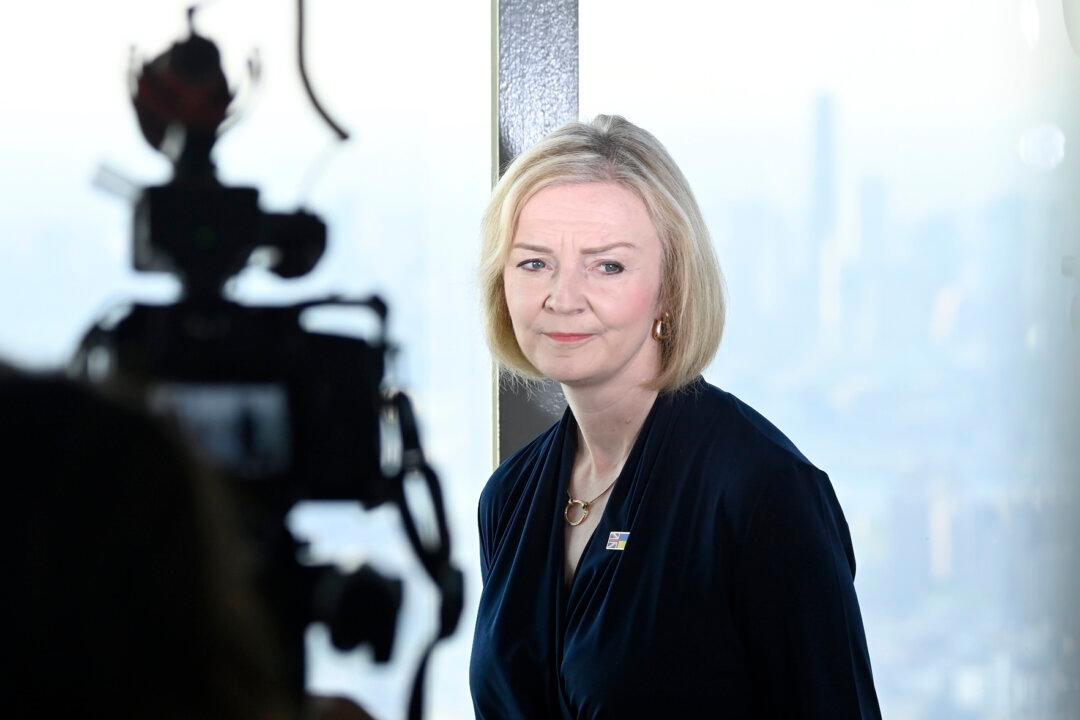UK Prime Minister Liz Truss said that Britain will never recognize the four regions annexed by Russia as “anything other than Ukrainian territory.”
Russian President Vladimir Putin on Sept. 30 presided over an elaborate ceremony in Moscow marking the “accession” of four regions—Donetsk, Luhansk, Zaporizhzhia, and Kherson—to the Russian Federation.





